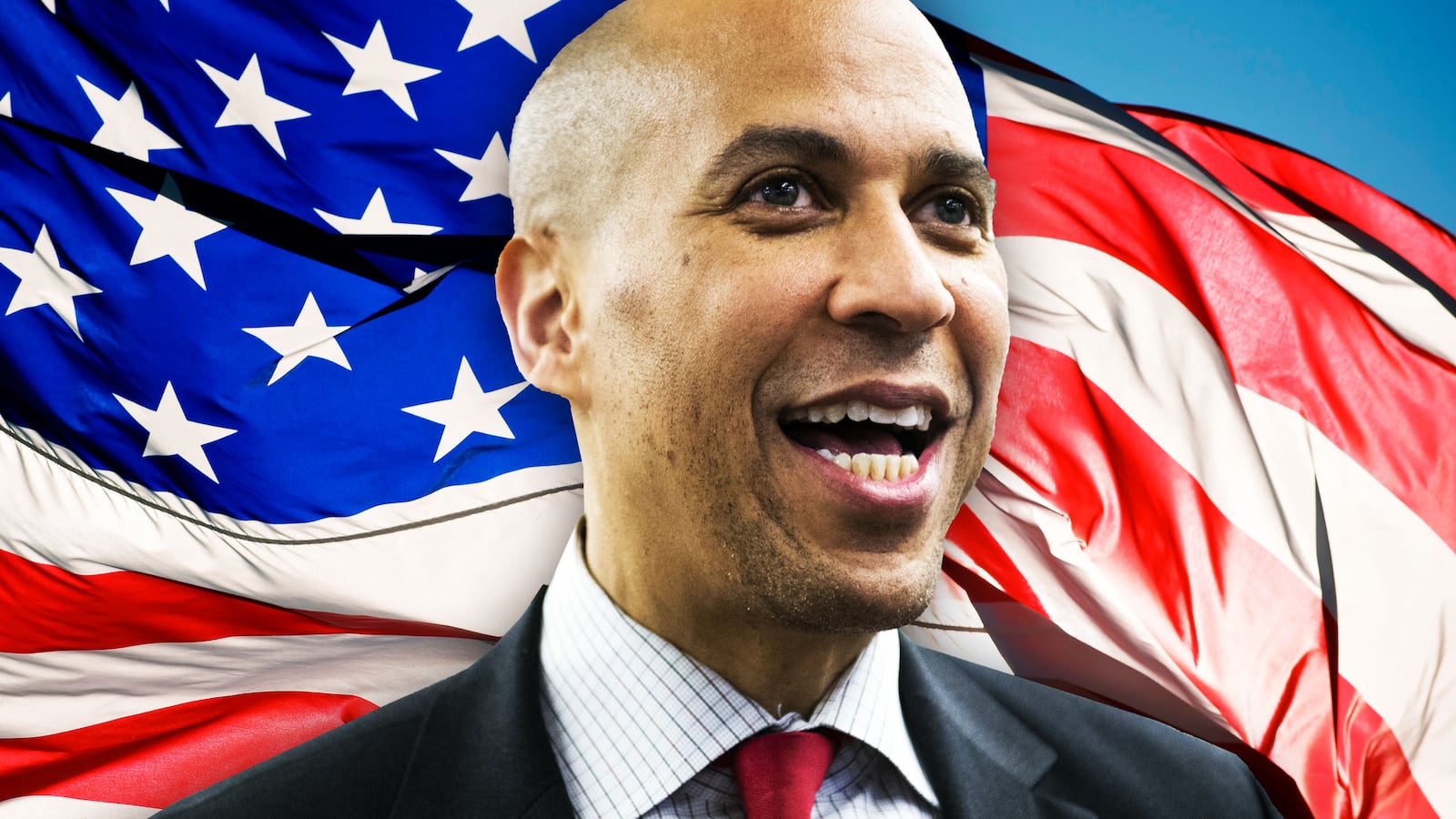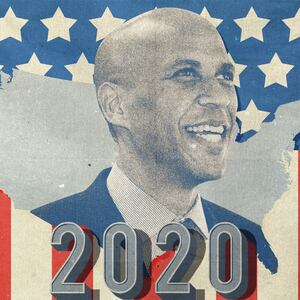Sen. Cory Booker (D-NJ) is joining the increasingly-crowded field of Democrats vying for the presidency in 2020.
The New Jersey Democrat sent an email to supporters on Friday morning announcing his intentions to run for the White House. It included a video and a message emphasizing a unifying, uplifting approach that seems intended as a rhetorical contrast to others in the field.
“We are better when we help each other,” Booker says. “I believe that we can build a country where no one is forgotten, no one is left behind; where parents can put food on the table; where there are good paying jobs with good benefits in every neighborhood; where our criminal justice system keeps us safe, instead of shuffling more children into cages and coffins; where we see the faces of our leaders on television and feel pride, not shame.”
Booker is the fourth Senate Democrats to effectively begin a presidential run. But unlike some of his colleagues, who have announced exploratory committees, Booker is bypassing that step and formally starting his campaign.
His committee, “Cory 2020,” will mirror those of his competitors in rejecting contributions from corporate PACs and federal lobbyists. Booker’s aides say he will oppose Political Action Committees supporting his candidacy, though he’s legally prohibited from preventing a PAC from doing so. Already, a San Francisco-based Democratic donor has formed a pro-Booker PAC and pledged to raise $10 million on his behalf.
A 49-year-old long-serving public official, Booker will be the second African-American senator in the presidential race, alongside his colleague Sen. Kamala Harris (D-CA). His launch, an aide said, was timed, in part, to coincide with the first day of Black History Month. And among the first media appearances Booker will make after declaring on Friday will be appearances on two radio programs with massive African-American audiences: the Tom Joyner Morning Show and The Black Eagle with Joe Madison.
Booker, who had already made the rounds in early primary states and has been courting staff for quite some time, will also appear on “The View” on Friday, with his mother, Carolyn Booker, a Las Vegas native, expected to be in attendance. The Senator is also slated to travel to Iowa next weekend, followed immediately by South Carolina and then New Hampshire during President’s Day weekend.
Before being elected to the Senate in New Jersey in 2013, Booker served as Newark’s mayor from 2006 to 2013. It was his work there, his outgoing governing style, and his willingness to take somewhat contrarian positions that made him an on object of national interest.
In 2012, Booker came to the defense of Bain Capital while President Barack Obama was using then candidate Mitt Romney’s career at the private equity firm to paint him as an out-of-touch elitist. He subsequently walked back his comments after the segment aired on “Meet the Press.”
Booker has long been the subject of skepticism from the party’s progressives for his prior acceptance of Wall Street and Silicon Valley money. He was the Senate’s top recipient of Wall Street money in the 2014 election cycle and has worked with both Facebook CEO Mark Zuckerberg and current Education Secretary Betsy DeVos on education. Booker served with the latter on the board of Alliance for School Choice, which advocated using taxpayer money for charter schools. But as Senator, he voted against Devos’ nomination.
Booker has established progressive bonafides on criminal and social justice issues. He introduced a bill that would legalize marijuana and expunge federal marijuana convictions and has spoken forcefully about the inequalities inherent in the U.S. legal infrastructure.
Since Donald Trump’s election, he’s moved further left. He laid down his marker by voting against Jeff Sessions when his fellow senator was nominated for Attorney General at the start of Trump’s term. And Booker has endorsed Medicare for All, and introduced a federal jobs guarantee bill. One of his newer ventures is a bill to provide low-income kids with “baby bonds,” that could allow them to have a future down payment for property or going to college.
But it’s Booker’s political style as much as his policy approach that seems likely to personify his candidacy. His rhetoric is often defined by lines about love, compassion, and collective action—a contrast to the more populist pitches that have been espoused by Democrats like Sens. Bernie Sanders (I-VT) and Elizabeth Warren (D-MA), and certainly Trump himself.
"This is not a time for us to rest in our country," Booker had said in South Carolina on Martin Luther King Jr. Day. "The work is not done. The dream still demands."








